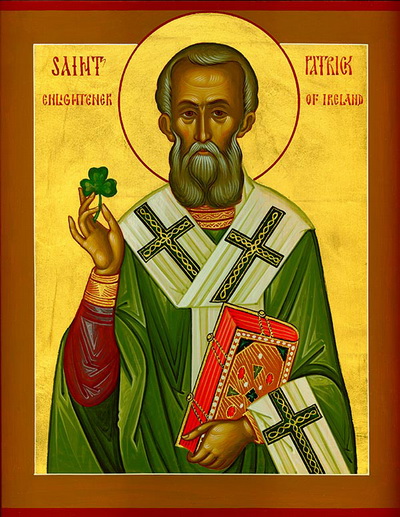 |
| Church of St Peter , Affile |
I was flicking through an old breviary this morning to look something else up, and stumbled across something I'm sure I knew, but had forgotten, namely that long ago (ie before the 1911 calendar reforms), the feast of the transitus of our Holy Father St Benedict actually came with a first class Octave.
As I'd dearly love to see more octaves revived one day, I thought I would briefly describe the rubrics for it, as set out in my 1892 breviary, and provide the readings (from the Dialogues).
The rubrics for the Octave of St Benedict (during Lent)
At Matins the invitatory verse and hymn were as for the feast (Regem confessorum Dominum and Quidquid antiqui). I won't set them out in full (acquire one of the older breviary reprints!), but the first Nocturn had one antiphon and versicle for each day, said with the psalms of the day of the week; the second Nocturn similarly had an antiphon for each of the five days. There were two readings of the feast, with the third from the ferial Lent day.
At Lauds and the other hours, all was said as on the feast, but with a commemoration of the Lent day. Vespers was as for Second Vespers, except on the seventh day, when it was said as for I Vespers of the feast.
Readings for day 2 in the Octave (Dialogues chapters 1-2)
Reading 1: There was a man of venerable life, blessed by grace, and blessed in name, for he was called "Benedictus" or Benedict. From his younger years, he always had the mind of an old man; for his age was inferior to his virtue. All vain pleasure he despised, and though he was in the world, and might freely have enjoyed such commodities as it yields, yet he esteemed it and its vanities as nothing.
He was born in the province of Nursia, of honorable parentage, and brought up at Rome in the study of humanity. As much as he saw many by reason of such learning fall to dissolute and lewd life, he drew back his foot, which he had as it were now set forth into the world, lest, entering too far in acquaintance with it, he likewise might have fallen into that dangerous and godless gulf.
Therefore, giving over his book, and forsaking his father's house and wealth, with a resolute mind only to serve God, he sought for some place, where he might attain to the desire of his holy purpose. In this way he departed, instructed with learned ignorance, and furnished with unlearned wisdom.
Reading 2: Benedict having now given over the school, with a resolute mind to lead his life in the wilderness: his nurse alone, who tenderly loved him, would not by any means give him over. Coming, therefore, to a place called Enside and remaining there in the church of St. Peter, in the company of other virtuous men, which for charity lived in that place, it fell so out that his nurse borrowed of the neighbors a sieve to make clean wheat, which being left negligently on the table, by chance it was broken in two pieces, Whereupon she fell pitifully weeping, because she had borrowed it. The devout and religious youth Benedict, seeing his nurse so lamenting, moved with compassion, took away with him both the pieces of the sieve, and with tears fell to his prayers; and after he had done, rising up he found it so whole, that the place could not be seen where before it was broken.
Coming straight to his nurse, and comforting her with good words, he delivered her the sieve safe and sound: which miracle was known to all the inhabitants thereabout, and so much admired, that the townsmen, for a perpetual memory, hanged it up at the church door, to the end that not only men then living, but also their posterity might understand, how greatly God's grace worked with him on his first renouncing of the world. The sieve continued there many years after, even to these very troubles of the Lombards, where it hung over the church door.
More anon...


.jpg)
